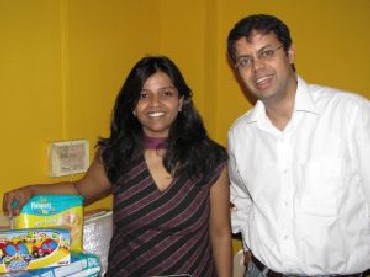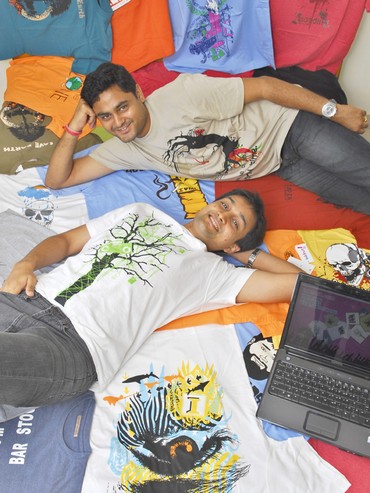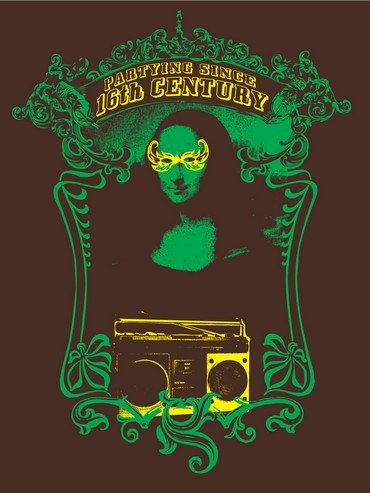 | « Back to article | Print this article |
Meet the wannabe poster boys of e-commerce
Flipkart's Sachin and Binny Bansal may have become the poster boys of the Indian e-commerce industry, but there are a host of others who are emerging from the shadows.
Take Mithun Sacheti, founder of CaratLane.com. Sacheti, the scion of the family which owns Jaipur Gems, has chosen to sell solitaire diamonds jewellery in the virtual world. The website caters to three products - solitaires, jewellery and gold coins.
So far, the firm accounts for 1,000 shipments a month. The average transaction size is around Rs 100,000 for solitaires, with the maximum value reaching as high as Rs 50 lakh. In the case of jewellery the average transaction size is about Rs 15,000, with the maximum transaction value touching Rs 300,000.
The company recently raised $6 million (around Rs 27.6 crore) from Tiger Global, a US-based Hedge Fund. Sacheti says in the next two to three years, he expects the company to be a leading player in the online jewellery space. "Since our launch, we have had a 300 per cent compounded annual growth rate, and recorded revenue of Rs 50 crore (Rs 500 million). We intend to double this by March, 2012," he said.
Click NEXT to read more...
Meet the wannabe poster boys of e-commerce
Sacheti believes CaratLane is different from other jewellery sites. "Most of the websites that are into online jewellery transactions are the online presence of jewellery stores. They can't offer the price advantage that a pure play online store like CaratLane does. Besides, we have the largest collection of solitaires compared to any of them. Also, we are the only jewellery portal that manufactures our own products," he said.
While for Sacheti, diamonds and jewellery seemed a natural progression, for the husband-wife duo Sanjay Nadkarni and Arunima Singhdeo, the idea of setting up a venture in the baby care category space came out of their experience as parents.
"When we became parents, we found it difficult, when it came to buying baby products. The shops or shopping malls were far off and being working parents, getting small things was difficult," said Singhdeo. That experience came in handy while setting up babyoye.com.
Click NEXT to read more...
Meet the wannabe poster boys of e-commerce
Both quit their cushy jobs before starting babyoye.co in September, 2010. But the decision proved worth their efforts. One year into operations, Babyoye has expanded its product category from three to 10.
On an average, the site sees daily transactions of 300-350. During promotions, this goes up to 600. And, the average transaction size is Rs 2,000.
"When we started, we had diapers, nursing and feeding and outdoor gears as categories. In the first two categories, we had around 800 products. Today, these categories have 7,000 products," says Singhdeo.
The venture recently received $2.5-million funding from Tiger Global, a hedge fund from the US and Accel Partners. Unlike several portals that have cropped up in the recent past due to the discount buzz, Babyoye has kept away from that.
Click NEXT to read more...
Meet the wannabe poster boys of e-commerce
"Our prices are slightly lower than the mark-up price. But we do not heavily discount products. That's simply because our focus is to provide quality products and services," says Singhdeo.
So far, 40 per cent of the traffic on the website comes from the top eight cities of India. To cater to the growing demand, the firm plans to set up more warehouses, as the company expands. Currently, it has two warehouses and has tied up with 250 vendors cross the country.
To add value, the site is also provides nutrition course for babies. Almost 700-800 products on the website have reviews from mothers. They have also plugged in videos on products by parents from YouTube.
Mumbai-based Inkfruit is yet another example of a niche ecommerce venture. Inkfruit is Asia's largest community centred brand for people to submit, discover and buy designs created by artists from around the world.
Click NEXT to read more...
Meet the wannabe poster boys of e-commerce
Started by two IITians, Kashyap Dalal and Navneet Rai, in 2007, the idea behind the venture was to allow local artists a platform to showcase their designs and create a co-created brand of products. So far, the company has around 45,000-50,000 designs on its sites, contributed by 30,000 designers.
Other than providing a platform for artists, Inkfruit has also managed to give them a mode of earning money. If a design is selected, an artist can get remuneration of between Rs 5,000 and Rs 50,000, and the rights are then transferred to Inkfruit.
Each of these designs is selected by a competitive process, based on the comments received by users, feedback and time spent by users viewing a particular design.
On a daily basis, thousands of designs are uploaded to the site. Once a week, generally on Fridays, the portal declares three winners.
Click NEXT to read more...
Meet the wannabe poster boys of e-commerce
On a daily basis, it accounts for around 50,000 visitors, the majority of them 20-35 years old. For Dalal, his experience with HUL as sales and marketing manager for two-and-a-half years and Rai's stint with a luxury apparel brand has come handy in setting up the business.
The founders had managed to raise $3 million from SAIF Partners earlier this year. This would be used to expand infrastructure and build a team. Unlike other apparel portals, Inkfruit has an offline presence with retailers like Lifestyle and Central.
"We are planning to come out with t-shirts with LED panels and battery pack. Depending on the music being played, the light on the t-shirt would change.
Such products are specific launches. Depending on their popularity, we would take a decision if we want to relaunch them," said Dalal. During Holi, the firm had brought out colour-changing t-shirts and had sold around 5,000-6,000 of these.






